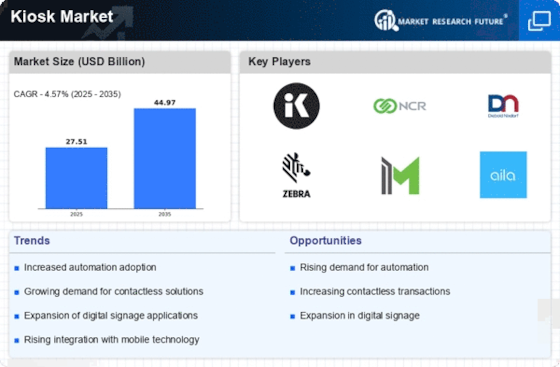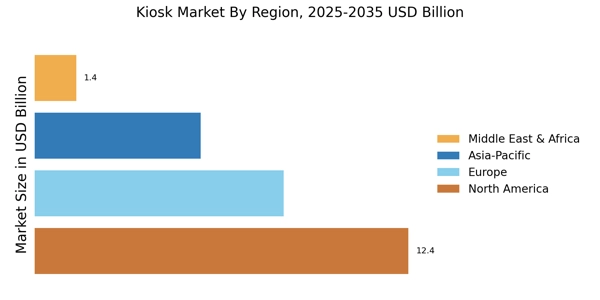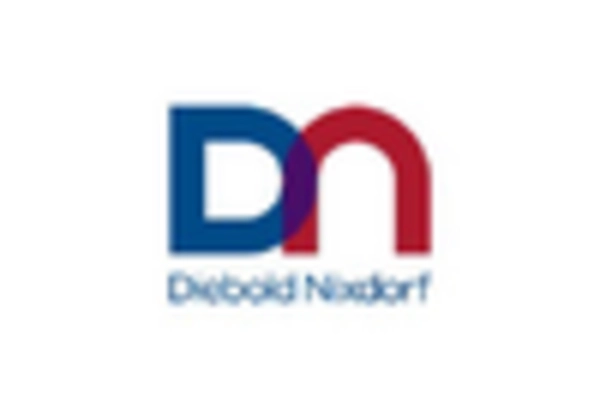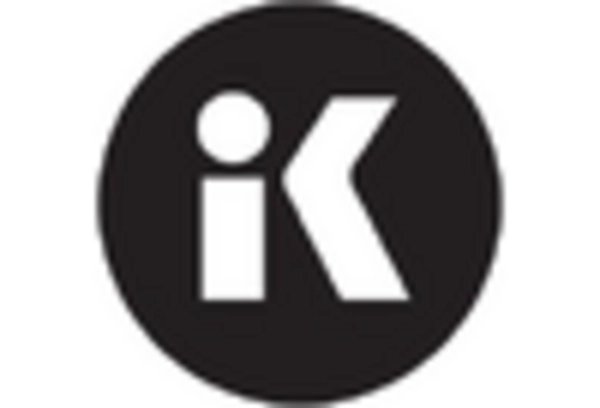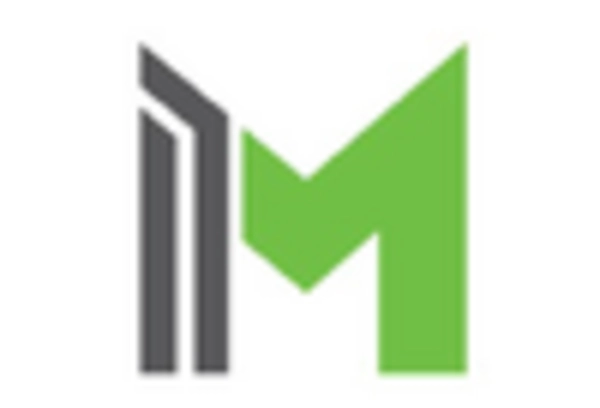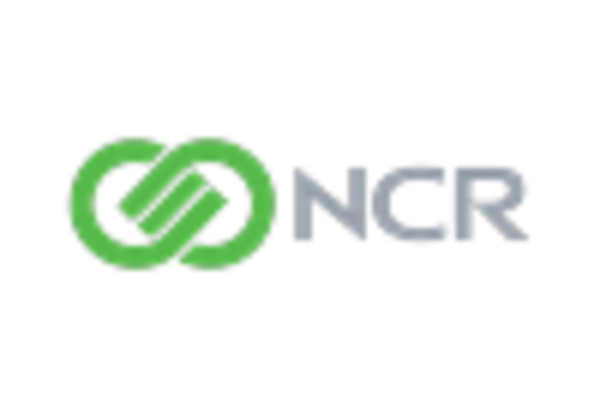Technological Advancements
The Kiosk Market is experiencing a surge in technological advancements that enhance user experience and operational efficiency. Innovations such as touchless interfaces, artificial intelligence, and cloud computing are becoming increasingly prevalent. These technologies not only streamline transactions but also provide valuable data analytics for businesses. For instance, the integration of AI in kiosks allows for personalized customer interactions, which can lead to increased sales. According to recent data, the adoption of advanced technologies in kiosks is projected to grow by over 20% annually, indicating a robust trend towards modernization in the Kiosk Market. This technological evolution is likely to attract more businesses to invest in kiosk solutions, thereby expanding the market further.
Government Initiatives and Regulations
The Kiosk Market is also shaped by various government initiatives and regulations aimed at promoting technological adoption and improving public services. Governments are increasingly recognizing the potential of kiosks in enhancing service delivery in sectors such as healthcare, transportation, and public administration. For example, initiatives to digitize public services have led to the installation of kiosks in government offices, allowing citizens to access services more efficiently. This trend is supported by data showing that government investments in technology can lead to improved service delivery and cost savings. As such, the Kiosk Market is likely to benefit from ongoing government support and regulatory frameworks that encourage the adoption of kiosk solutions.
Increased Focus on Customer Experience
The Kiosk Market is increasingly influenced by the heightened focus on customer experience. Businesses are recognizing that enhancing customer interactions can lead to greater loyalty and repeat business. Kiosks are being utilized as a means to provide personalized services, gather feedback, and facilitate seamless transactions. Data indicates that companies that prioritize customer experience can see revenue increases of up to 10%. As a result, the Kiosk Market is likely to see a rise in the deployment of kiosks designed specifically to enhance customer engagement. This trend suggests that businesses are not only investing in kiosks for operational efficiency but also as a strategic tool for improving overall customer satisfaction.
Rising Demand for Self-Service Solutions
The Kiosk Market is witnessing a notable rise in demand for self-service solutions across various sectors. Consumers increasingly prefer self-service kiosks for their convenience and efficiency, particularly in retail, food service, and transportation. This trend is supported by data indicating that self-service kiosks can reduce wait times by up to 50%, significantly enhancing customer satisfaction. As businesses strive to improve operational efficiency and reduce labor costs, the implementation of self-service kiosks appears to be a strategic move. Furthermore, the growing trend of contactless transactions is likely to bolster the adoption of self-service kiosks, making them a vital component of the Kiosk Market.
Expansion of Retail and Hospitality Sectors
The Kiosk Market is benefiting from the expansion of the retail and hospitality sectors, which are increasingly adopting kiosk solutions to enhance customer engagement. As these sectors grow, the need for efficient service delivery becomes paramount. Kiosks serve as effective tools for managing customer flow, providing information, and facilitating transactions. Recent statistics suggest that the retail sector alone is expected to see a growth rate of approximately 15% in kiosk installations over the next few years. This expansion is indicative of a broader trend where businesses are leveraging kiosks to improve customer experiences and streamline operations, thereby driving growth in the Kiosk Market.

